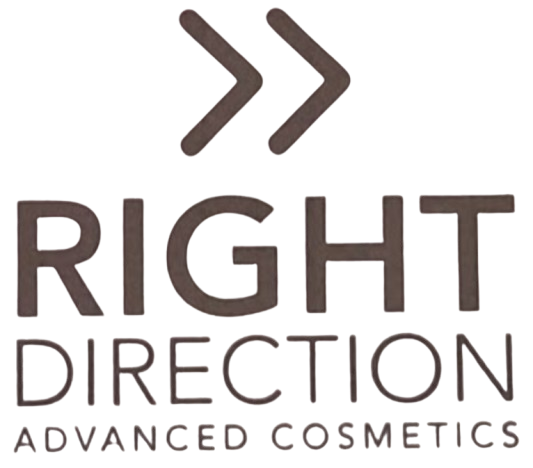
Say goodbye about stubborn acne and hello to a radiant complexion. This detailed guide will walk you past the essentials of acne treatment, making it easy to understand your options and find what works best on you.
From pinpointing the causes of your acne to discovering effective treatments, we'll shatter down the complexities into simple, implementable steps. Whether you prefer natural remedies, we have valuable tips to boost your skin's health and esteem.
Get ready to venture on a journey for clearer, healthier skin.
Let's get started!
Banish Breakouts: Effective Acne Remedies for All Skin Types
Clear skin is a dream for many, but stubborn acne can make achieving that smooth complexion feel impossible. Fortunately, there are a variety of effective remedies available to combat breakouts, no matter your skin type.
A good regimen should include gentle cleansing twice daily with a appropriate cleanser designed for acne-prone skin. Exfoliating regularly can also help remove dead skin cells and unclog pores, preventing future breakouts. Don't forget to hydrate your skin after cleansing, even if you have oily skin, as this helps maintain a healthy skin barrier.
In addition to a consistent beauty routine, consider incorporating some of the following natural remedies: tea tree oil has germ-fighting properties that can help soothe and reduce inflammation. Aloe vera gel can soothe irritated skin and promote healing.
If your acne is severe or persistent, don't hesitate Acne Treatment to consult a dermatologist. They can prescribe stronger treatments like topical solutions or oral antibiotics.
Banishing Blemishes: A Guide toClearer Skin
Acne can be a frustrating challenge for many, impacting self-esteem and overall confidence. Luckily, there are a variety of proven treatments and skincare strategies that can help you achieve clearer skin. Starting with a gentle cleanser twice daily is crucial to removing dirt, oil, and bacteria that lead to breakouts. Consider incorporating a salicylic acid or benzoyl peroxide product to target acne-causing bacteria. In addition to topical treatments, lifestyle factors like stress management and a balanced diet can also make a significant role in improving skin health.
- Talk to a dermatologist if you're experiencing severe or persistent acne. They can suggest stronger medications or procedures tailored to your specific needs.
- Consider non-invasive treatments like laser therapy or chemical peels, which can effectively reduce acne scarring and improve skin texture.
- Remember that consistency is key when it comes to skincare. Stick to your routine diligently for best results and expect for improvements to show.
Conquer Acne : A Step-by-Step Approach to Acne Control
Tired of persistent zits ruining your complexion? You're not alone. Acne is a common problem that can bother people of all ages. But don't worry, there are actions you can take to get your skin back on track.
First, it's important to develop a regular skincare routine. This should include cleansing your face twice a day with a gentle face wash and putting on an spot cream as directed.
It's also vital to keep your fingers off your face! Touching your skin can introduce bacteria and aggravate acne.
Finally, don't forget the importance of a healthy diet. Eating a nutritious diet, acquiring enough shut-eye, and managing stress can all aid to clearer skin.
Be patient| It may take some time to see progress, but with a little effort, you can say goodbye to zits and hello to healthier, happier skin!
Understanding Acne: Causes, Symptoms, and Treatment Options
Acne is a common problem that affects millions of people worldwide. It occurs when hair follicles become clogged with oil and dead skin cells, leading to the formation of zits. {Several factors can contribute to acne, including genetics, hormonal fluctuations, diet, stress, and certain medications. Symptoms of acne vary from mild to severe and may include whiteheads, blackheads, cysts, nodules, and inflammation. Treatment options for acne depend on the severity of the condition and may involve topical creams. It's important to consult with a dermatologist to determine the best course of treatment for your individual needs.
- Some common causes of acne include excess oil production, clogged pores, bacteria, and inflammation.
- Symptoms of acne can range from mild irritation to severe cysts and nodules that can be painful and scarring.
- {Effective treatments for acne often involve a combination of approaches, such as topical medications, oral antibiotics, or hormonal therapy.
Tackle Acne: A Comprehensive Plan
Breaking out is a common struggle that can affect people of all ages and skin types. While acne is often temporary, it can result in lasting scars and harm self-esteem. The good message is that there are plenty of effective approaches to avoid acne breakouts and reduce existing spots.
- Recognizing your skin type is the first step in developing an effective acne plan. Oily, combination, dry, and sensitive skins all have different demands.
- Washing twice daily with a gentle soap formulated for your skin type is essential. Avoid harsh soaps that can deplete the skin's natural oils.
- Exfoliating dead skin cells 1-2 times a week can help prevent filled pores, but be gentle to avoid irritation.
- A healthy diet low in processed foods and sugar can contribute to clear skin. Drink plenty of liquids to moisturize your body from the inside out.
- Regulating stress levels through exercise, yoga, or meditation can decrease acne breakouts. Stress hormones can initiate inflammation and oil production.